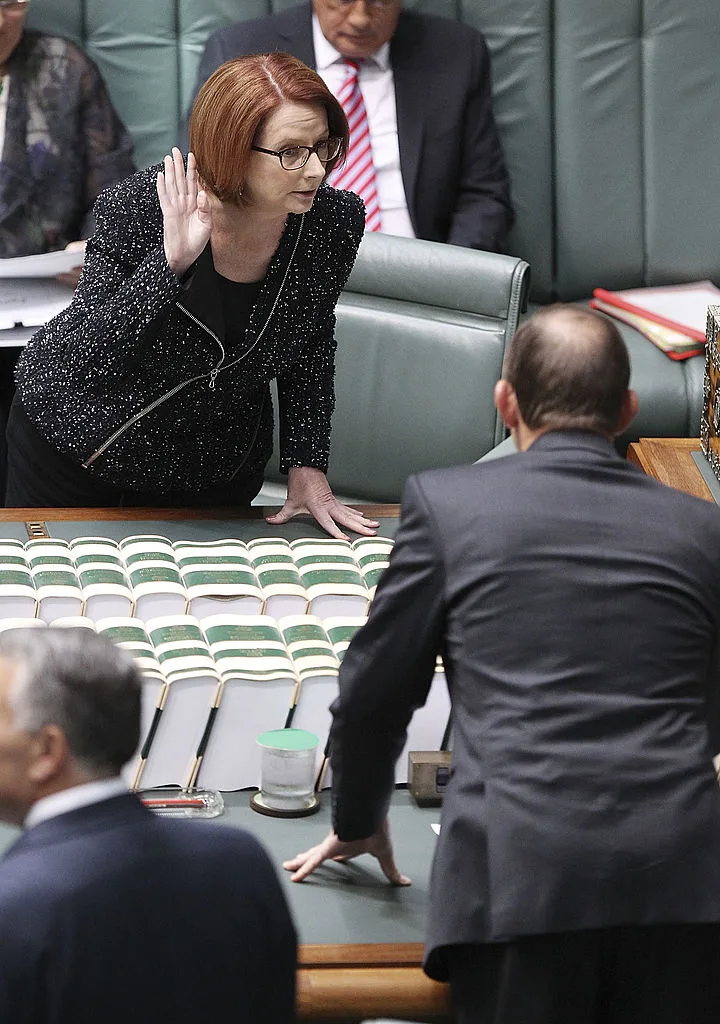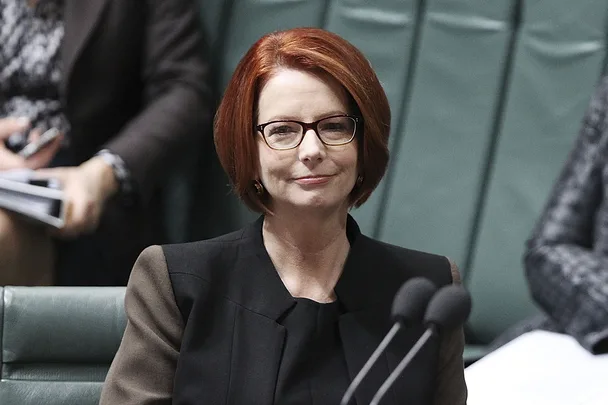“I will not be lectured about sexism and misogyny by this man. Not now, not ever.”
Julia Gillard’s denunciation of sexism in politics, delivered in a scathing speech in the House of Representatives in 2012, would go on to define her prime ministership, and now eight years on from that career-defining moment, the politician has reflected on why she believes that moment still resonates today.
In an interview with Stellar magazine over the weekend, Gillard said: “I had no inkling, zero inkling, when I did the speech that we would still be talking about it all these years later. And if anyone suggested to me that we’d still be talking about it in 2020, I would have said that was ridiculous.”
“Yet here we are, and in some ways I’m surprised, but in other ways I’ve come to understand what that speech has represented for women, and some men” she continued. “It’s come to represent what they wished they’d be able to do in the moment they’ve experienced gender treatment.”
RELATED: Julia Gillard And Tanya Plibersek Talk Solidarity And Sexism

Gillard was sworn in as Australia’s 27th Prime Minister over a decade ago, and served for three years and three days. During her term, she was regularly targeted for things that held no merit on her political performance – everything from the size and fit of her jackets, the cut of her hair, the tone of her voice and even, as one member of Parliament from the opposition Liberal Party put it, to be “deliberately barren.”
And, that iconic speech was not the first time Gillard denounced the treatment she faced (and still faces) as a woman in politics.
Speaking on Labor MP Andrew Leigh’s podcast, Gillard said she once believed sexist critiques would subside once people acclimatised to the fact a woman occupied the nation’s top office. That, however, was not the case.
“As we recall now, actually the gendered insult became more and more common the longer the government governed, and the more political heat there was around and the more measures to contest, particularly carbon pricing,” she told Leigh. “I think with the benefit of hindsight, it would have been better if all of us named it and shamed it earlier, but that’s a lesson learned only through having lived through it.”










